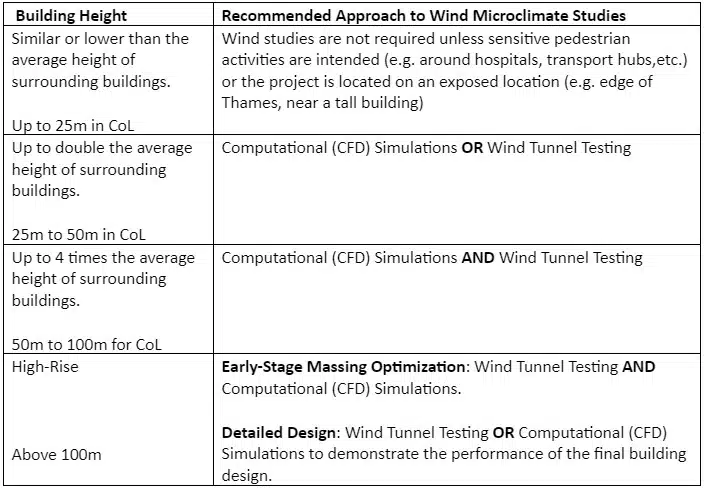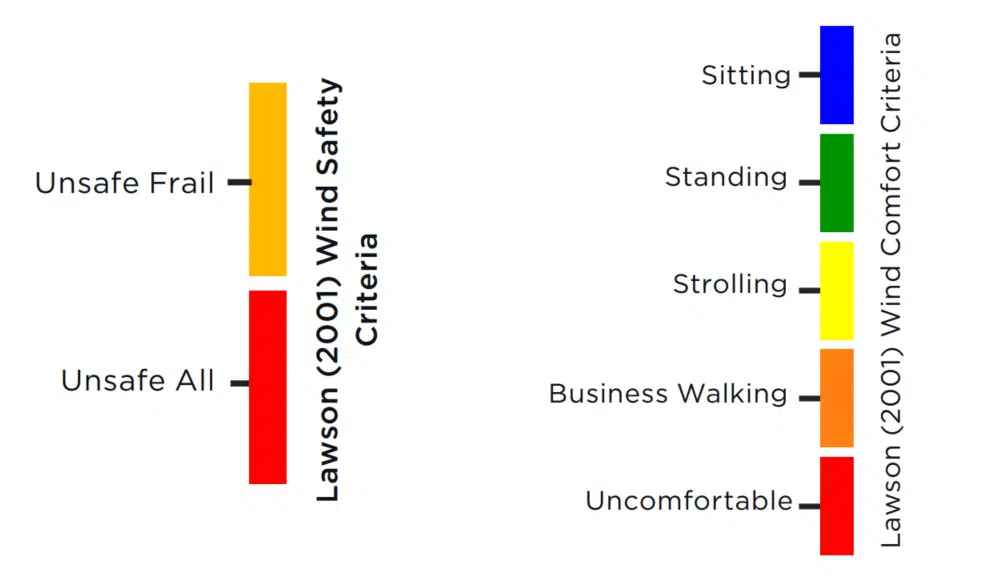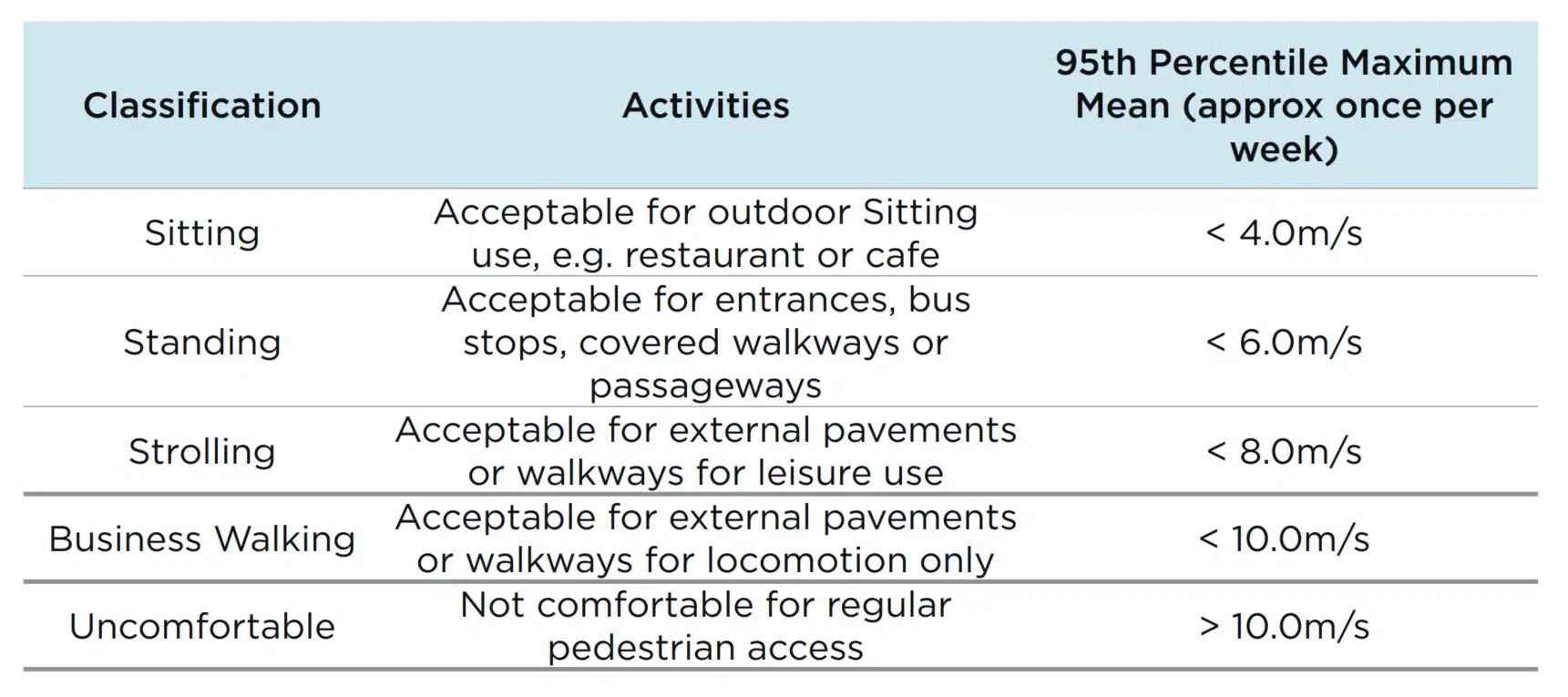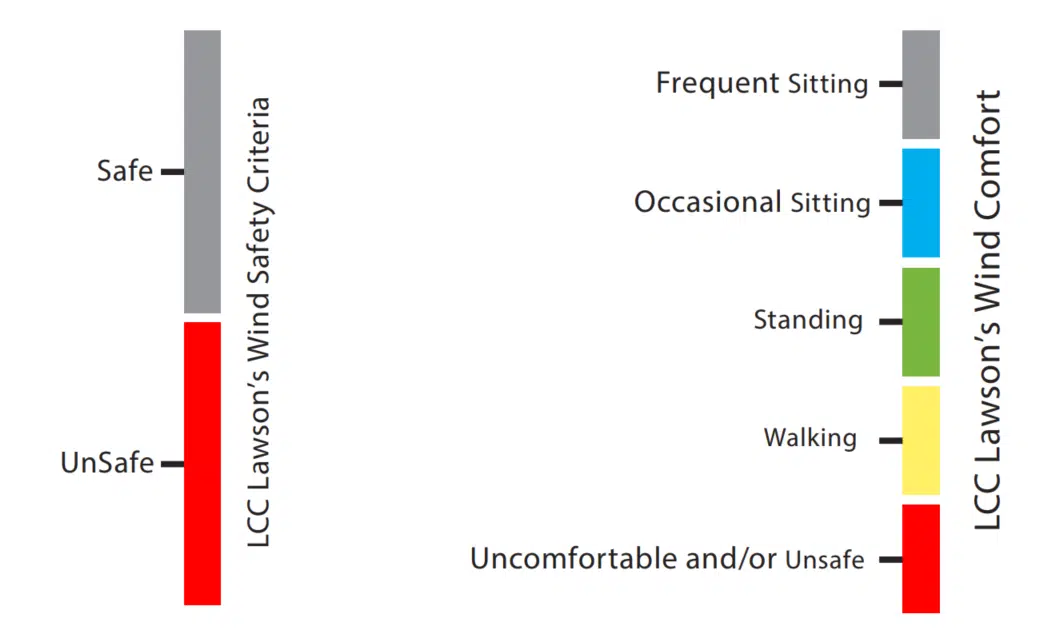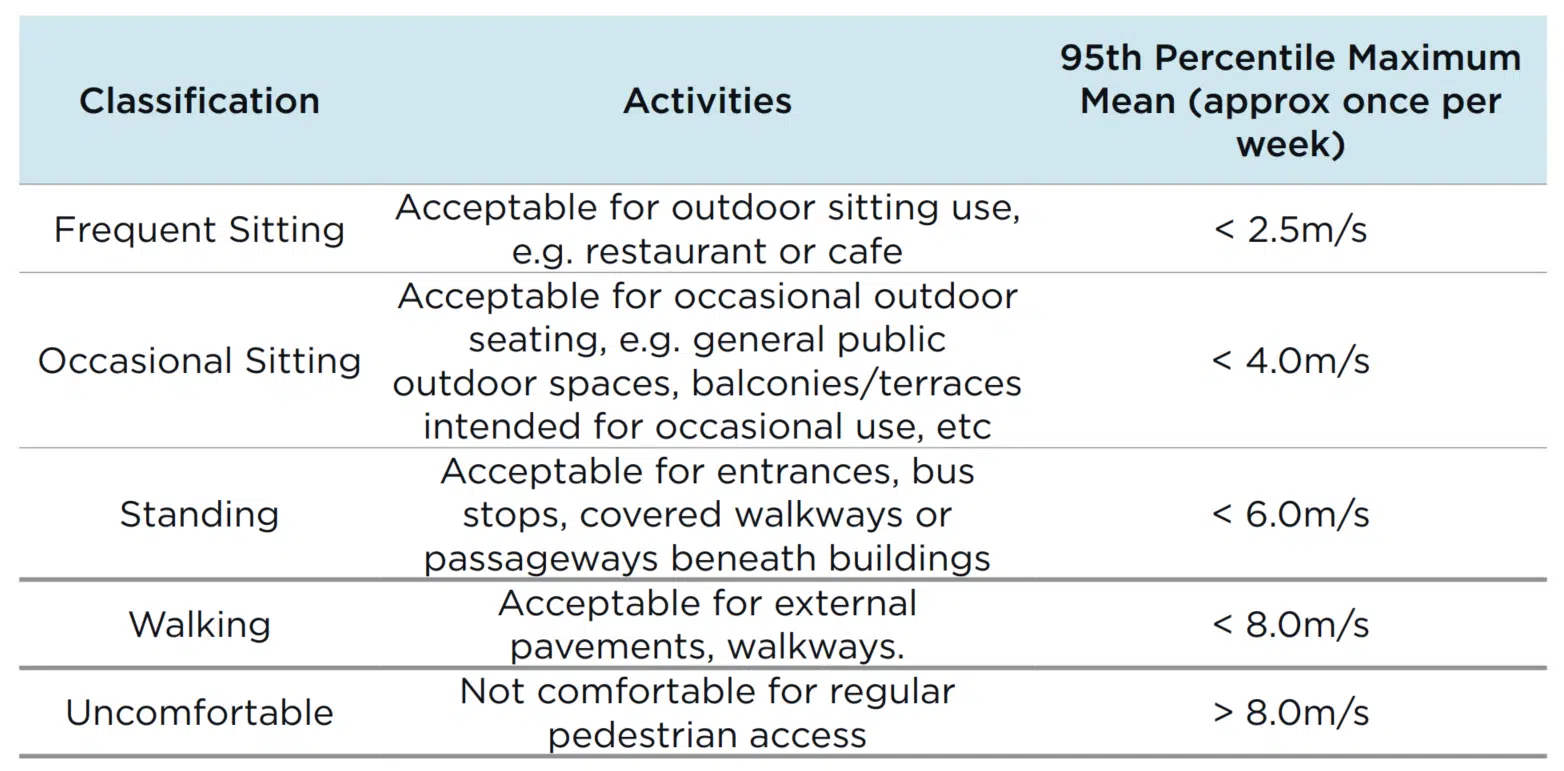An Introduction to UK Wind Microclimate
Ensuring a safe and comfortable wind microclimate is a pre-requisite for developers and architects on new developments in the UK. Not only is it often a requirement in local planning guidance, taking care to design outdoor spaces that are not overly windy ensures they are suitable for their intended use and can be fully enjoyed by their tenants and the public.
Pedestrian Wind Microclimate Studies in the UK are undertaken through a method of simulation known as Computational Fluid Dynamics (CFD) and or physical testing at a reduced scale in a wind tunnel. Both methods provide a quantitative review of conditions, but care should be taken that the right approach is selected given the attributes of a given development.
Factors that should be considered include but are not limited to:
- The location of the scheme.
- The exposure of the scheme to the prevailing wind.
- The size of the scheme, most importantly the height.
- The form of the massing and how this massing is presented to the prevailing wind.
- The likelihood of prominent wind effects causing increased wind speeds. E.g. downwash, wind funnelling, side-streaming etc
Understanding Local Requirements
Depending on the location of the scheme, local guidelines may provide clear recommendations on the approach to be undertaken. For example, guidelines have been developed in Leeds and the City of London to ensure a more consistent approach and further extended to be used in the city of Birmingham.
A copy of a table from the Leeds guidelines is included below, which shows the general expectations for the types of wind microclimate studies required for various building heights.
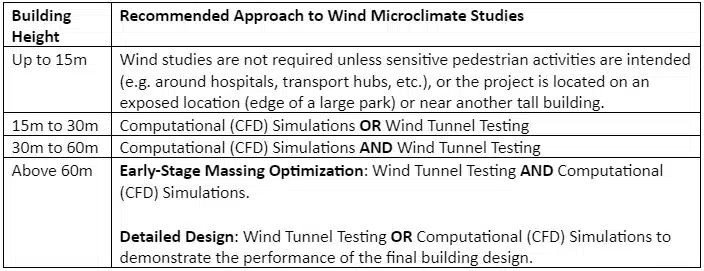
A copy of a table from the City of London guidelines is also included below. Note that unlike for the guidelines in Leeds, the two wind modelling approaches must be carried out by independent consultants.
Wind Microclimate Criteria used in the UK (Lawson’s Criteria)
Before embarking on a project that requires one or both methodologies to be commissioned it is also recommended that the project team has a sound understanding of the criteria used for assessing wind comfort and safety.
Copies of the two most commonly used criteria used in the UK are included in Figures X and Y. It is notable that the more recent ‘City of London’ Criteria is more stringent, with an additional category for ‘Frequent Sitting’ and a lower wind speed required to meet the safety threshold.
Figure X – Lawson’s Criteria (2001)
Figure Y – City of London Lawson’s Criteria
The intricacies and nuances of these studies are significant. Windtech can provide educational presentations on these topics on request.
Please contact reception@windtechglobal.com

